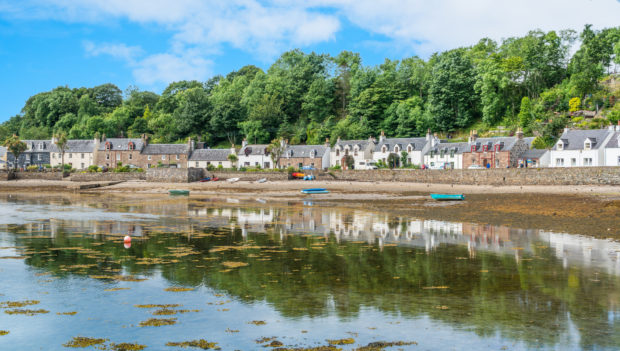
All happy families are alike; each unhappy family is unhappy in its own way. – Leo Tolstoy
Since, on the eve of his wedding, the passionate Russian gave his bride-to-be diaries detailing his previous affairs, he presumably knew a little about unique unhappiness.
While he was writing in different times, some things remain unchanged and, in these days of contagion, happy families remain lucky (although possibly not reading the papers) while the rest of us have worries of our own.
Some of us worry about older parents and grandparents, spending precious time isolated from loved ones; others fret about our children, about schools, exams, and how these times might colour their character; parents of teenagers agonise over their uncertain future and the loss of their most carefree years; and those of us lucky enough to be working, wonder for how long?
Every family in Scotland has a special set of concerns but so too does every part of the country where jobs and homes are founded on employers and industries facing particularly uncertain futures.
However, even seen through this new post-Covid prism, our Highlands and islands face particular and specific threats.
Impact on the region could be catastrophic
Putting the reckless, arrogant rush north of holiday home owners to one side, the impact of this pandemic on tourist numbers is, this year at least, likely to be catastrophic.
Our report from Plockton today reveals an income model mirrored in holiday villages across the Highlands where six good months of summer will subsidise leaner times in the darker months. Whatever happens in the weeks ahead, there will not be six good months this year.
Rightly or wrongly, the region’s economy floats on tourism pounds, dollars and Euros. Visitors spend an estimated £1 billion a year, with the industry employing 15,700 people and indirectly supporting many more.
This, of course, in some of the most economically fragile areas of Scotland where many young people, hoping to find a future in their communities, are already forced to leave to find work and homes.
The immediate impact is a clear and present danger to many small businesses, eking out diminishing savings, but the longer-term risks are even greater.
We do not have to look too far back in history to discover the savage impact of one forced exodus and the region’s economy must be shored up to prevent another.
Many of us will need help to endure this storm and our governments, in Westminster and Holyrood, will need to combine pragmatism and compassion.
When allocating limited financial support, however, ministers must be guided by one principle; the most vulnerable, those closest to the brink – whether individuals, industries or 10,000 square miles in the far north – must be their priority.

Enjoy the convenience of having The Sunday Post delivered as a digital ePaper straight to your smartphone, tablet or computer.
Subscribe for only £5.49 a month and enjoy all the benefits of the printed paper as a digital replica.
Subscribe